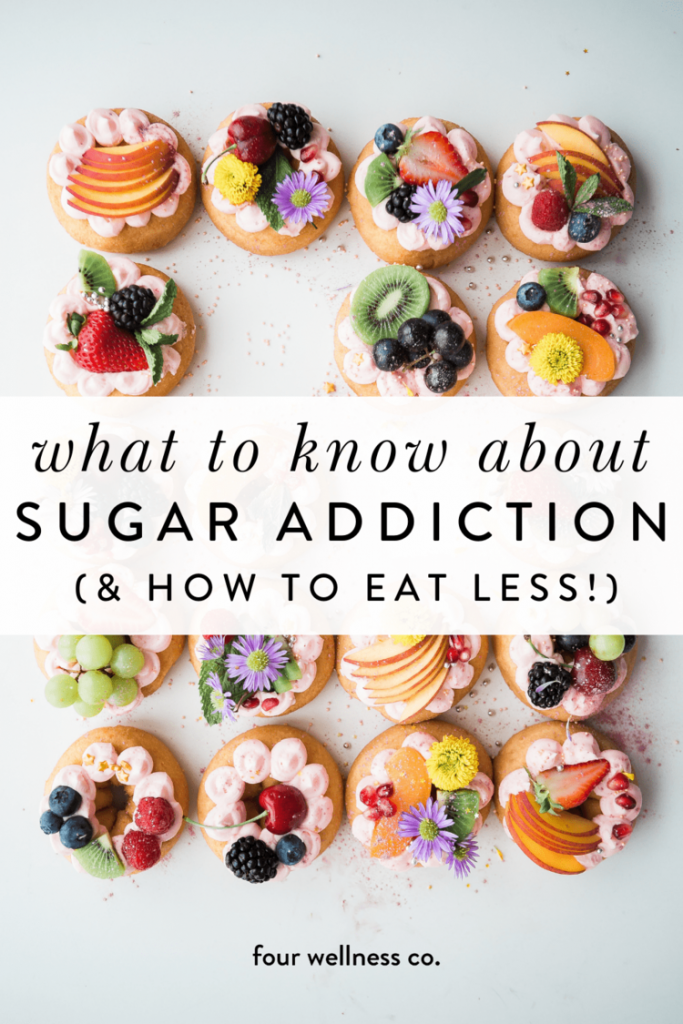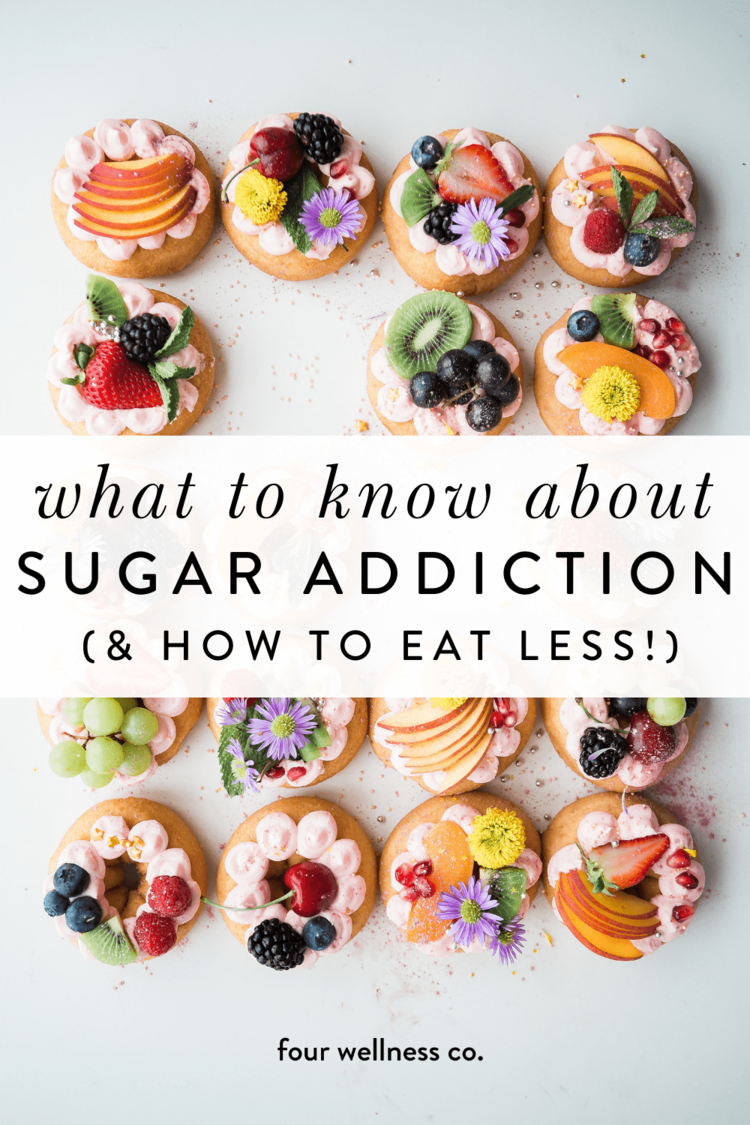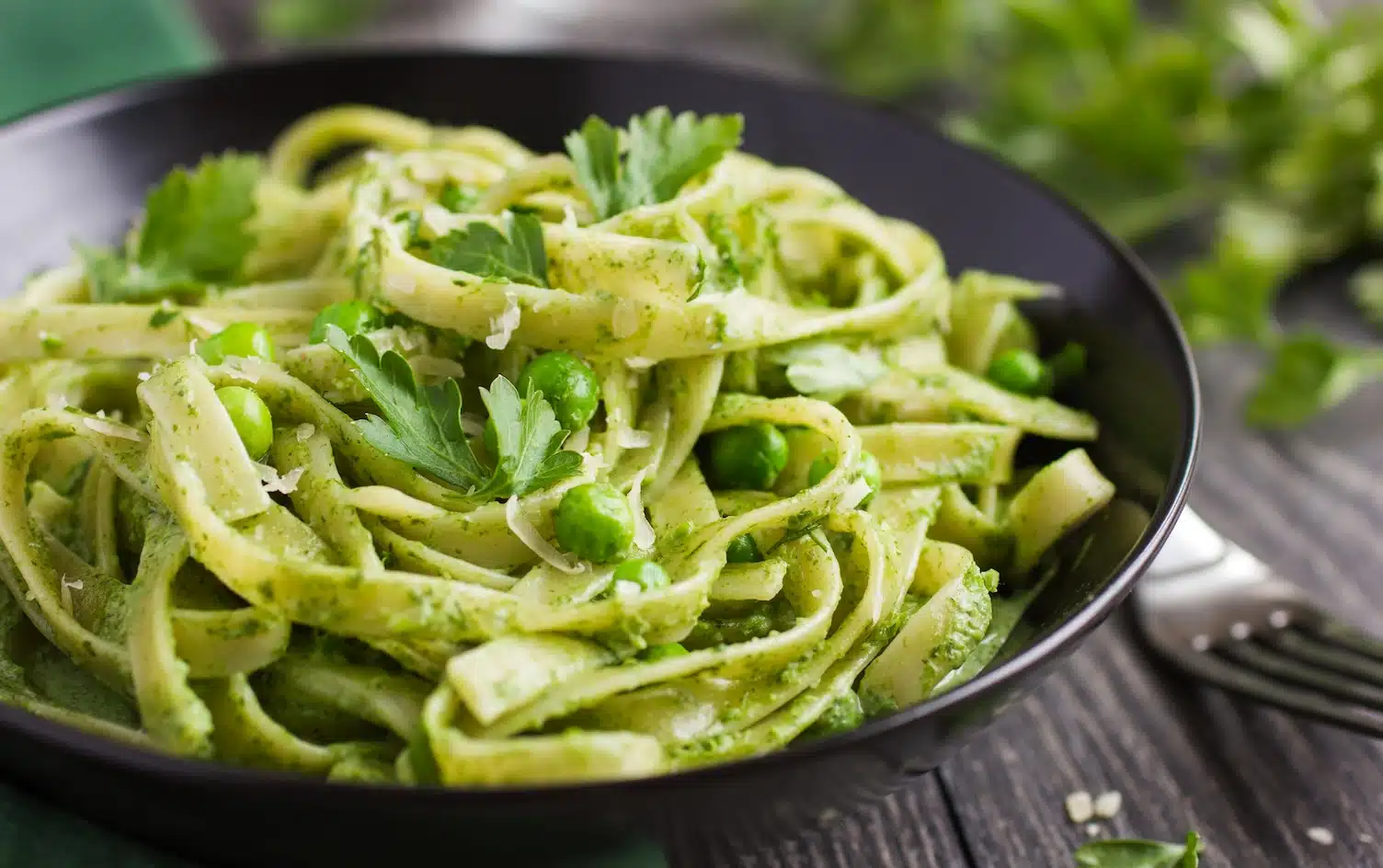Ice cream, chocolate, candy and cookies – there are many ways to satisfy sugar cravings.
But what do these sugar cravings actually mean for our health?
Believe it or not, sugar addiction is a real health problem …… and it’s experienced by more people than they probably realize!
What is Sugar Addiction?
Sugar addiction sounds a bit over the top (after all, is it really possible to be “addicted” to donuts and cakes? So, unfortunately, it often doesn’t get the attention it deserves.
But sugar addiction is real. And it has some very real health problems, which we’ll discuss below.
That’s because consuming too much sugar over a long period of time can actually cause changes in our brain chemistry – just like alcohol (or any other drug).

How We Became Addicted to Sugar
Sugar addiction is like any other substance addiction:
Sugar releases dopamine in the body. Dopamine is a neurotransmitter that opens up reward circuits and helps us feel good. (Um, treat! 🧁
When we eat tons of sugar, our brain gets used to the constant dopamine stimulation. It needs more and more dopamine to feel the same good vibes – meaning, we need to eat more and more sugar to feel the same happiness.
This is called dependence, and it can change the way we look at dopamine-producing substances like sugar. It’s what guides us from the occasional treat to the must-have entree.
Unfortunately, sugar addiction is becoming more and more common, especially in the United States. That’s because many of us accidentally eat more sugar than we should. Wait, how can eating too much sugar be accidental?
Even if you’re not consciously chewing on sweets, many companies add sugar to their foods to make them taste better. Unless you check the nutrition label on every packaged food you consume (spaghetti sauce, salad dressing, condiments, yogurt, you name it), you’re probably well over your daily sugar intake.
Symptoms of Sugar Addiction
So, how do you know if you are eating too much sugar and have developed a sugar addiction? There are a number of signs to look out for:
Sugar cravings (especially needing to eat more than usual to satisfy them)
binge eating (especially needing to eat more than usual to satisfy them)
“Stress eating” during emotional times
Eating even when you’re not hungry
Feeling guilty about eating too much sugar
You may also experience symptoms if you try to cut sugar from your diet. These are physical symptoms of withdrawal and may include: headaches, fatigue, muscle aches, nausea, intense cravings, difficulty sleeping, and bloating.
7 Simple Tips for Eating Less Sugar
We’re not here to tell you to cut sugar out of your diet completely. Having a sweet tooth from time to time won’t “ruin” your health. (Yeah!
But eating too much sugar can have some very harmful health effects on your body, so we do want to limit added sugar to an occasional part of our diet (aka a treat!), rather than a common event multiple times a day. , and not a common occurrence multiple times a day.
So how much sugar is too much sugar? In general, we should aim for no more than 100-150 calories of added sugar per day. If you’re looking at nutrition labels, that’s about 24-36 grams of sugar.
It may take a little cutting back to achieve this goal. Here are some tips for eating less sugar in your daily life:
How to Eat Less Sugar in Your Daily Life
Read nutrition labels: even if you don’t think a food is likely to have sugar in it …… Chances are, there are. More and more companies are using added sugars to give processed foods flavor. Always check the nutrition facts to see how much sugar is in a product. The results can be surprising!
No alcohol: Soft drinks and fruit juices are a huge source of sugar. Explore other low-sugar options for your beverage of choice. Obviously, water is a good choice. Squeeze in some lemon or lime for a little extra flavor, or try a healthy infused water recipe (these have additional health benefits as well.)
Stay Hydrated: Another reason to stay well hydrated is that mild dehydration can lead you to believe you’re hungry and need a sweet pick-me-up. Drinking water regularly throughout the day will keep you hydrated and reduce sugar cravings.
Eat whole foods: most processed foods contain added or hidden sugars. You can easily skip them by eating unrefined or processed whole foods. Here’s more information about using whole foods to plan healthy weekly meal plans.
Make your own snacks: Even artificial snacks sold in healthy forms often contain added or hidden sugars. Making your own snack mixes with fresh fruit, nuts, jerky and eggs can help prevent added sugar in your diet.
Adjust your recipes: Baking a cake? Swap one cup of sugar for one of the natural sweeteners mentioned above. Many natural sweeteners contain baking conversion rates on their packaging. (Sweeten!
MAKE HOSPITALITY BE HOSPITALITY: The premise of a sweet treat (a slice of cake, a cookie, a bowl of ice cream) is that it’s a treat – something you won’t eat all the time. Not only is this good for your health, but many people who reduce their sugar intake report enjoying snacks more when they don’t snack as often. Because they’re special, they’re also more special to our dopamine receptors. 🥰



